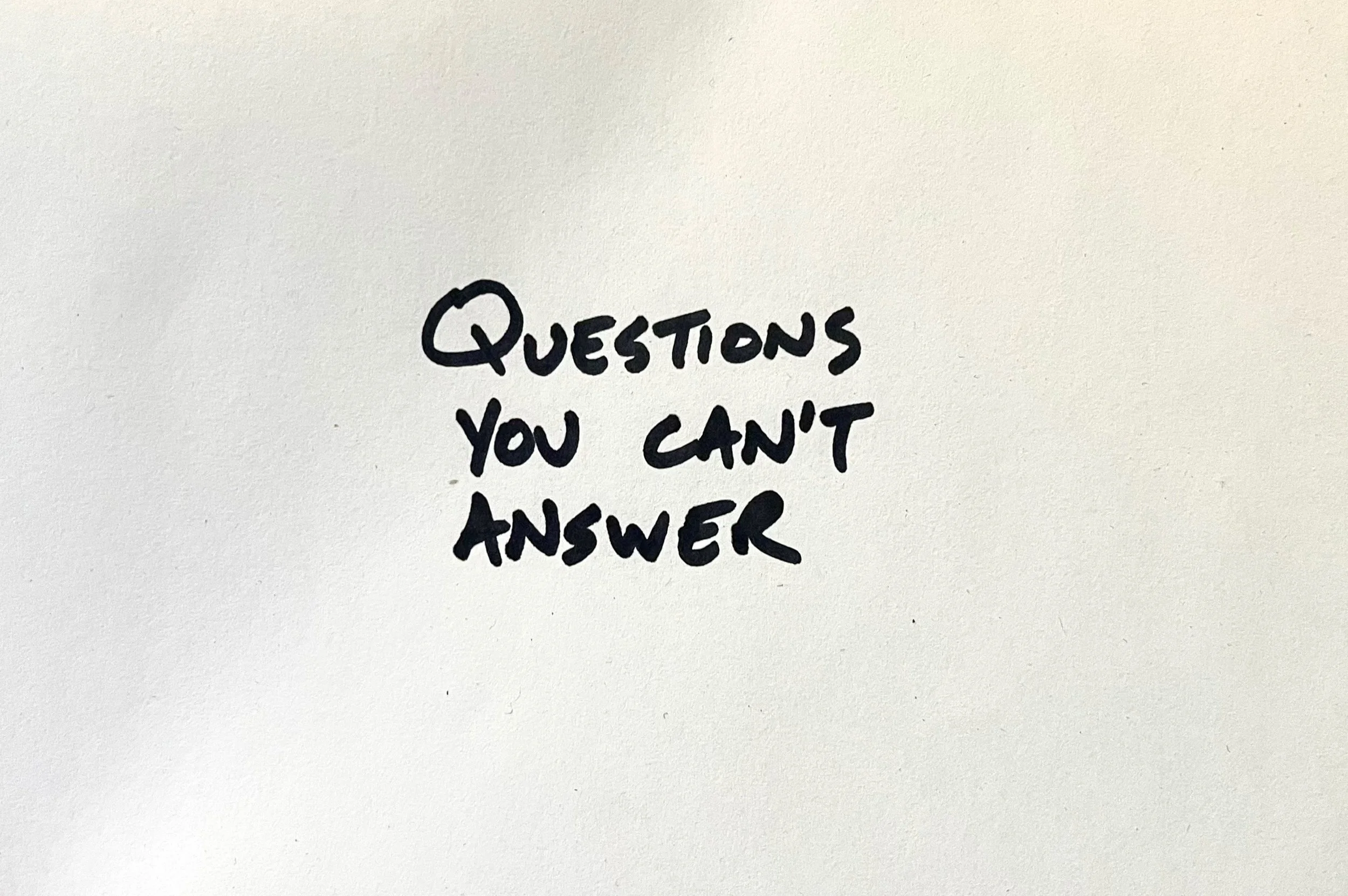Questions You Can’t Answer
Options of how to respond when you don’t know.
I was recently invited to coffee by a friend who works for a non-profit. The topic this friend wanted to pick my brain on was something along the lines of: How to execute in-person programming with a specific target audience in mind?
My verbatim response was: "More than happy to connect - though, admittedly, I'm not the expert on in-person events/experiences. That said, always open to a conversation! (And, frankly, would be fun to catch up)."
We had a great coffee chat - sharing ideas, perspectives, and riffing on specific examples. Overall, a really productive hour.
But a few weeks later, I'm now seeing that - when asked to weigh in on a question we don't have the answer to - we can respond in 4 ways (or any combination of the 4):
1. "Sorry, I don't know."
2. "I'm happy to jam on it with you."
3. "Here's a resource that might be helpful."
4. "Here's someone I think you should connect with about it."
1 is table stakes. Whether your stop here or add some combination of 2-4, you owe it to the person asking to admit what you don't know. It's ok not to be the expert in all things - but allowing the other person to understand your frame of reference before you say anything else is important.
2 demonstrates a solution-oriented nature and a willingness to roll-up your sleeves to support. Batting ideas around has a tendency to spark even more - and often better - ideas. And even if the topic isn't adjacent to your domain of knowledge, allowing the other person to use you as a sounding board can pay dividends as they plan their next steps. Plus, you can always riff on ways to try to answer the question if not the question itself.
3 serves as a great next step for the person asking. Whether a book, a podcast, a LinkedIn Learning video - this can help the person understand the topic on an intellectual level and build their plan. Be careful with recommendations though - if it's a topic you don't know much about, make sure you're in a good position to make a recommendation. I recently wrote about making recommendations here - it may be worth a read.
4 shows not only that you care about helping answer their question, but that you're willing to leverage your own relationships to help them succeed. Making introductions is powerful for two reasons: You are helping the person asking find an expert (that then becomes part of their network into the future) and also you're publicly acknowledging the third person as an expert (which may, inadvertently, open doors for them down the road).
So next time someone asks you a question you don't have an answer to: start with 1 - but don't stop there!
Thanks for spending time with me in my workshop,
Eric
